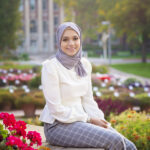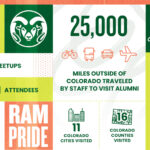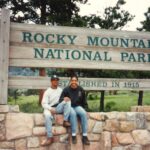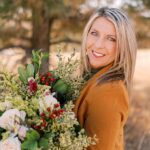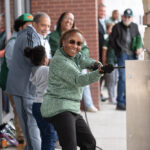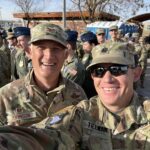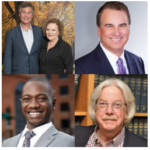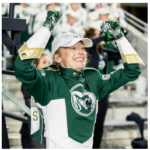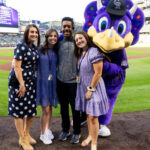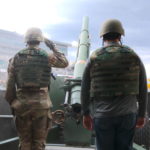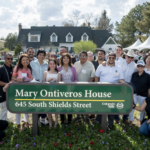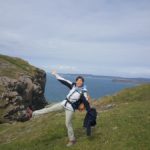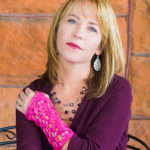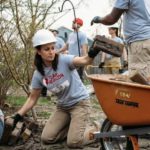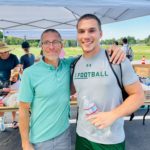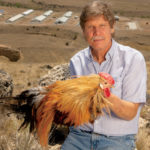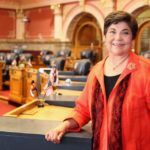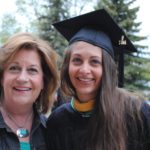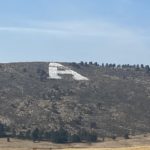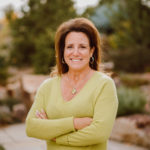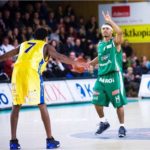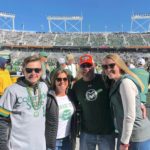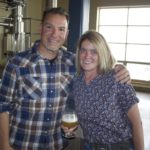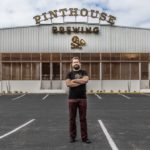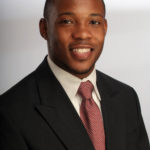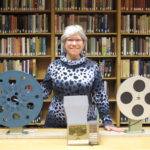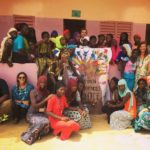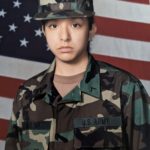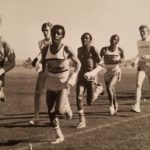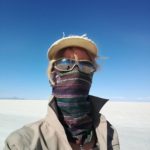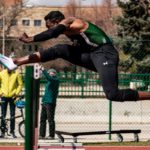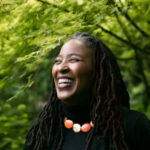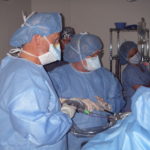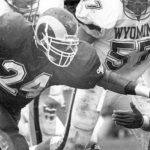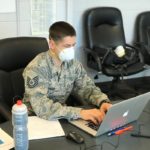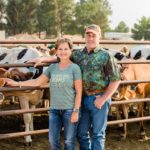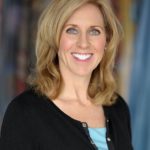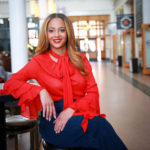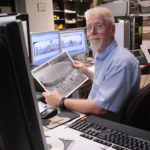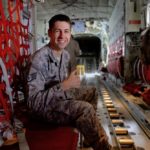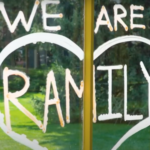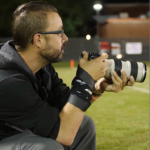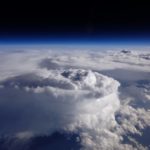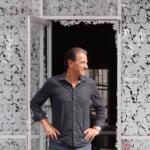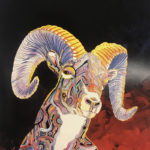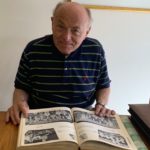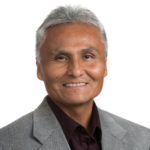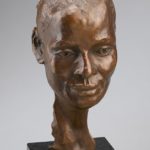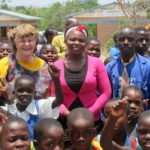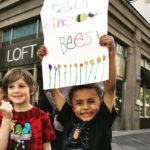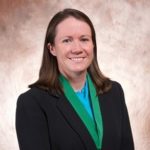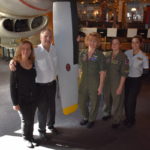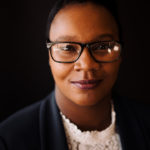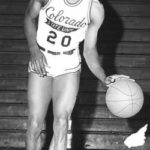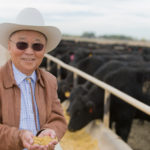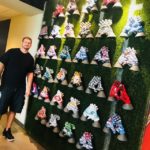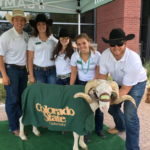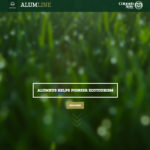Vanessa Villegas Selwyn (Ph.D., ’19) has always lived between worlds. She is the daughter of a Chicana Native American mother and a Russian, German, and Jewish father. Her academic background is the very definition of interdisciplinarity, with degrees in psychology, cellular and molecular biology, and curriculum and instruction.
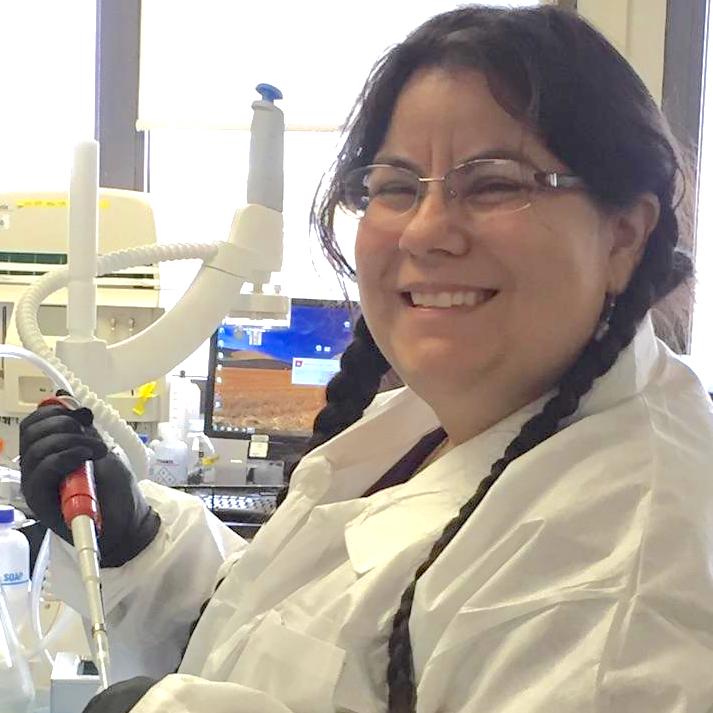
She has taught at both the high school and university level, and did a brief stint working at a non-profit to support the Cache la Poudre River National Heritage Area. As a training grant program coordinator in Colorado State University’s College of Veterinary Medicine and Biomedical Sciences, her current role, she helps students find their community and succeed in their studies while showing them a scientist doesn’t have to be an old white man in a lab coat with crazy hair.
Though this life of living in the “in-betweens” has come with hardships, pitfalls, and challenges, Selwyn has used it to push herself forward and help others succeed.
“To grow, and I think all of us have to grow, we have to give ourselves challenges to overcome, otherwise we stagnate,” she explained.
An Advocate for Change
Selwyn is very comfortable talking about her “mixed upbringing” she had while growing up in Las Cruces, New Mexico. This is because from a very early age she was put in a position to both represent and defend her varied heritage.
“Invariably a kid would say something inappropriate about one side of my family and I’d have to stand up to them,” she said. “They would say, ‘but I thought you were this?’ and I would respond, ‘I’m all of that!’”
One moment in particular stands out to her.
“My father, a tall, white man, would often drop me off at school, but one day my mother had to. The next day the kids all said, ‘Your nanny is really ugly,’” Selwyn said, the anger of that moment still stinging her. “I told them ‘I don’t have a nanny, that was my mother.’ After that half the kids wouldn’t talk to me because I was ‘one of them.’”
But that forced isolation did not weaken Selwyn’s resolve to honor all sides of her heritage. She used this moment to become an advocate for change, reach the highest levels of academia, and commit herself to standing up for underserved and underrepresented people.
“The stubbornness and resolve of my ancestors are part of my stubbornness and resolve, and it’s why when there were boundaries or blockages put in front of me I said, ‘No, I’m going to struggle. I’m going to get what I want. I’m going to be great,’” she emphasized.
Building Community
Selwyn says the main reason she was able to be successful in achieving her Ph.D. was because she found a community at CSU. Some, like Todos Juntos (El Centro’s graduate student-focused program) where Selwyn was President, were official CSU communities. Others were more organic.
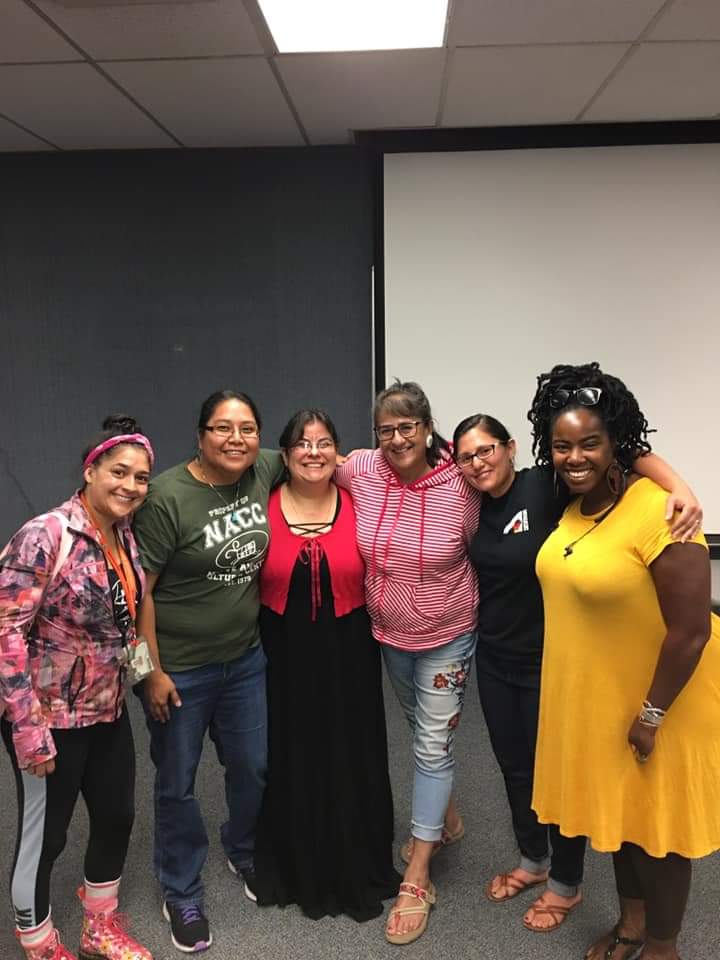
“When I couldn’t find community, I would build one,” she said. “I got together with a group of minority women who were all working on our doctorates. We would sit together, write, and be there when we defended our dissertations. We all have our Ph.D.’s now,” she said.
Selwyn was also a founding member of Graduate Students of Color Advisory Council that would evolve into the Climate Survey that tracks progress on diversity, equity, and inclusion at CSU. When Selwyn and the other founding members were starting that group, the one issue that kept coming up was a feeling of isolation.
“I think that goes two ways,” Selwyn said. “There’s that large feeling of social isolation where you think ‘maybe I don’t belong here or in this program.’ But there’s also that smaller sense of isolation where you feel like you don’t have anyone to turn to.”
The antidote for that feeling of isolation, she believes, is community.
“I think there’s this misbelief that in order to find community, I have to find people who are like me, but community doesn’t always have to be orientation-based,” she said. “When I was a grad student I found a community by joining those groups, but I think community can be more. It’s a group of people who are there to support one another, let everyone have a voice, and be a place where you can be yourself.”
That’s exactly the type of community she is working to foster at CVMBS as a training grant program coordinator. In that role, Selwyn is working to develop a unified and inclusive recruiting system, bringing students together as early as possible, and helping them avoid pitfalls she herself fell into as a student.
“Before students even come to campus, I set up a Teams meeting so they can meet and to get to know each other so when they do get here they already have that community. When we go recruiting, we’re recruiting for the entire college and not just one program we think certain students would be interested in,” she said. “One of the things we stress is if you’re having trouble in class, go to office hours because you can literally be tutored by your professor. But some students don’t go because they think they’re being a bother or will be looked at as a failure.”
The Power of Caring
Selwyn believes the power of caring is the key to it all. It’s why she helped a group of her high school students apply for college even though they’d been told “not to bother” because they were low income, were raising children of their own and “wouldn’t amount to anything.” (Most of those students would go on to earn their Bachelor’s degrees, some earned a Master’s, and others received full-ride scholarships).
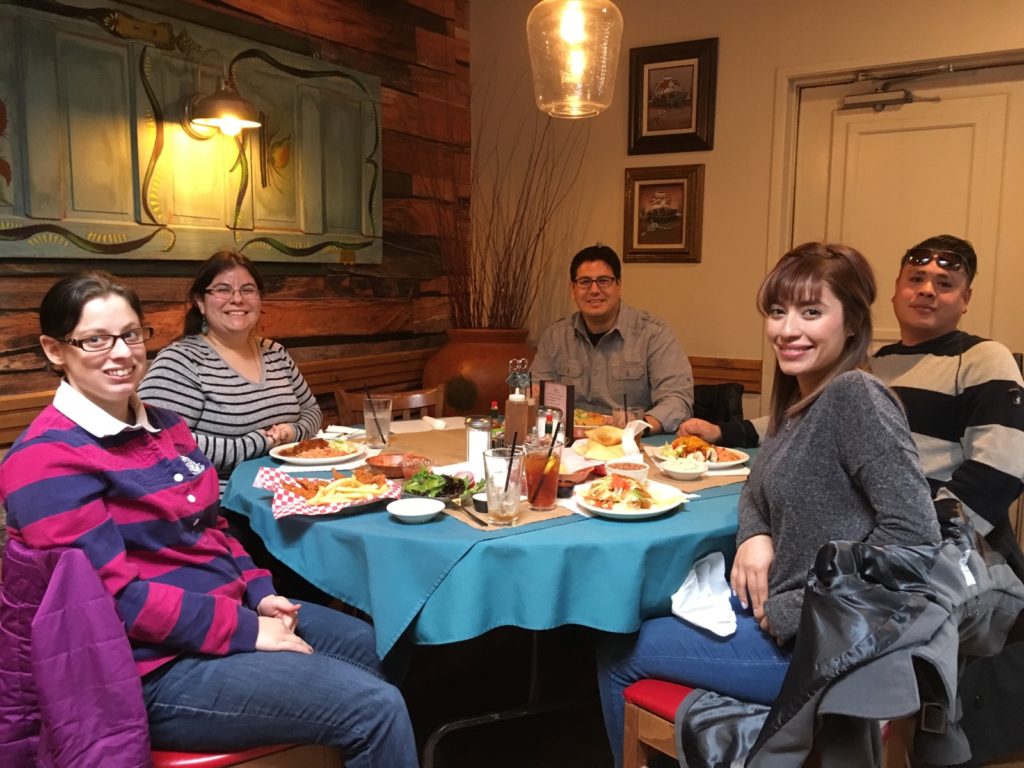
It’s what has led her to call out the “unspoken barriers” students face when entering the nuanced world of higher education that can oftentimes be in conflict with what their culture or background teaches.
Most importantly, she said, the power of caring is about providing opportunities for people who need them most and who didn’t even know those opportunities were there.
“If I can do even a small measure in helping push that idea and those people forward, I’ll feel like I’ve done good work,” she said.
***
When you join the Colorado State University Alumni Association, you become part of something bigger – a global community of green and gold that keeps alumni connected to the University and each other. As a Life Member, Vanessa is making an impact on current students and future Rams through scholarships; providing support for alumni programming, outreach, and engagement across the nation; and preserving time-honored traditions that bind us together as Rams. You can make a difference too, and gain access to benefits such as exclusive invites, bookstore savings, career services, and more. Become a member today!
